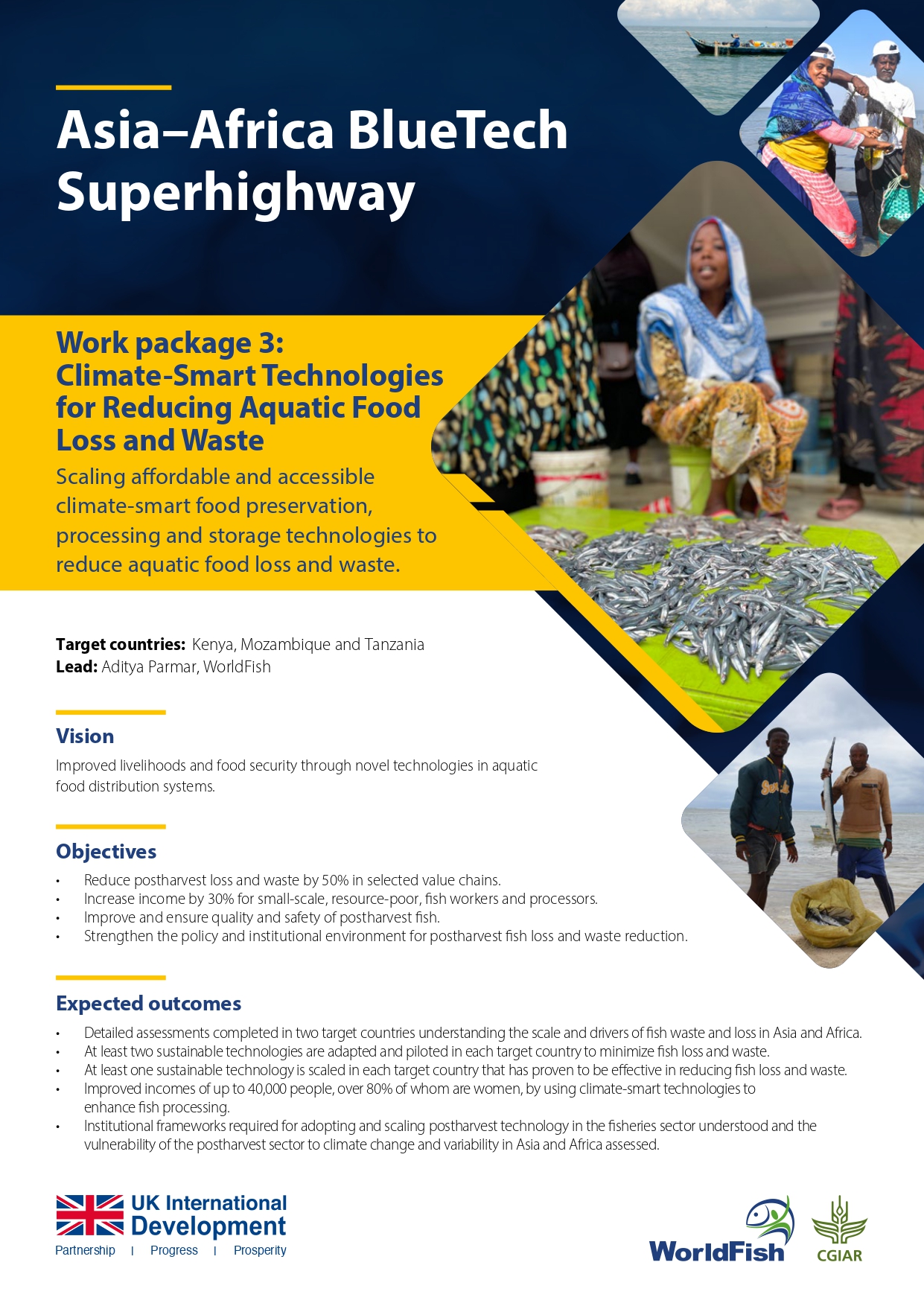Scaling affordable and accessible climate-smart food preservation, processing and storage technologies to reduce aquatic food loss and waste

Vision
Improved livelihoods and food security through novel technologies in aquatic food distribution systems.
Objectives
- Reduce postharvest loss and waste by 50% in selected value chains.
- Increase income by 30% for small-scale, resource-poor, fish workers and processors.
- Improve and ensure the quality and safety of postharvest fish.
- Strengthen the policy and institutional environment for postharvest fish loss and waste reduction.
Strategy
This project will tackle aquatic food loss and waste by fostering partnerships with a range of stakeholders, including governmental and non-governmental organizations, to leverage expertise and resources. It focuses on conducting comprehensive assessments to understand and address the drivers of fish loss and waste, piloting innovative, climate-smart technologies in processing, storage and preservation, and building local capacity through workshops and training. Climate-Smart Technologies for Reducing Aquatic Food Loss and Waste emphasizes sustainability and scalability, with rigorous monitoring and evaluation to inform strategies and share learnings in key regions in the target countries.
Partnerships
The success of this area of work relies on collaborations with local and international partners who play a crucial role in reducing food loss and waste.
- COMRED - Coastal and Marine Resource Development
- Kenya Marine and Fisheries Research Institute
- Nofima - Norwegian Food Research Institute
- Pwani University
- Simply Solar Technology Consulting Gbr
- Tanzania Fisheries Research Institute
- University of Dar es Salaam
- University of Pretoria
- World Resources Institute
July 2023–June 2030
Phase 1: 2023-2027
Target Countries:
Kenya
Mozambique
Tanzania
Lead: Aditya Parmar
Phase 2: 2027-2030
